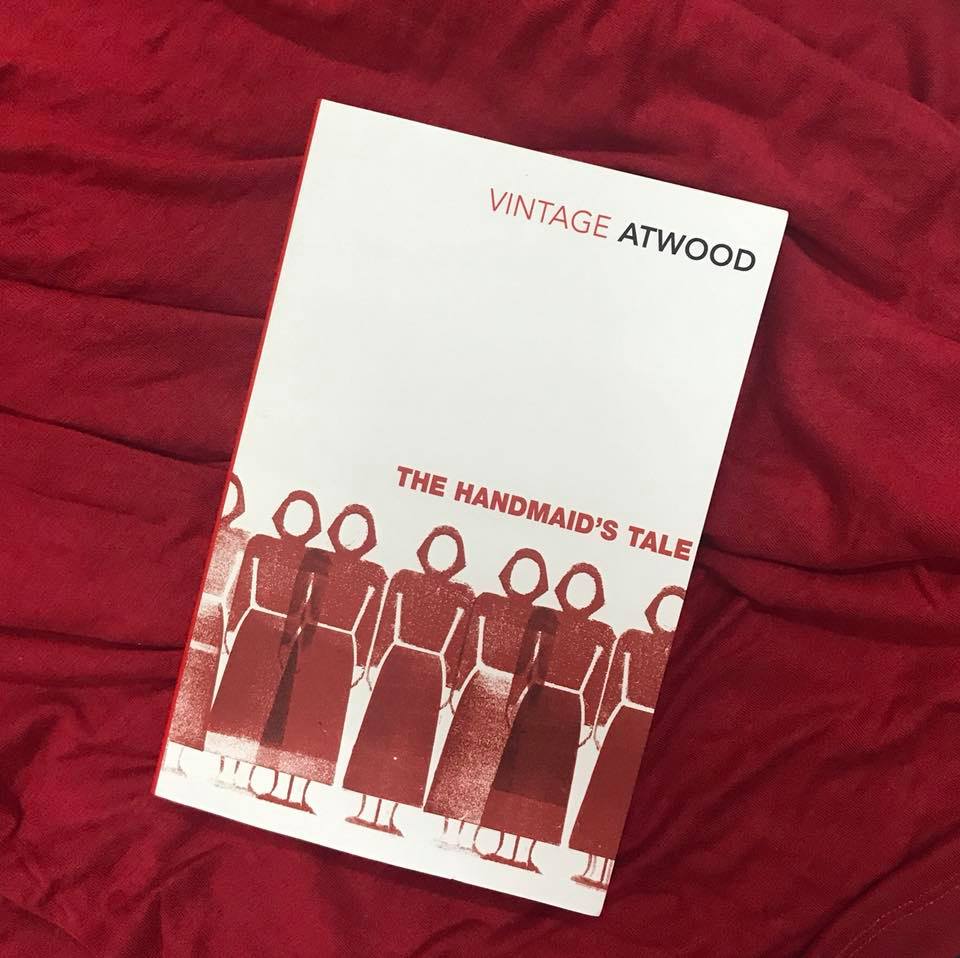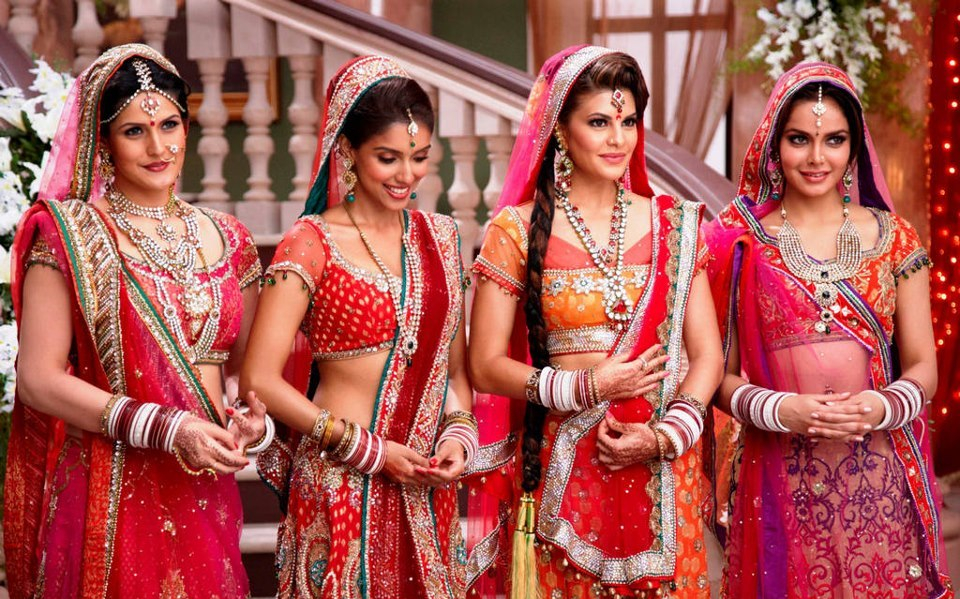“I will not change my name for a man.” That’s where it can begin.
For women, it seems, it’s easy to give up anything and sometimes everything for something or sometimes for nothing. It’s difficult, though, to see where it’s a mistake, where it’s unfair, where it’s asking for too much. It’s difficult to draw the line, but somehow easy to withdraw from taking a stand in truth.
Giving up or changing a name upon marriage is such a common thing for women, even today. It’s so “normal” and expected that we never think to stop and examine what it entails, and how abnormal it truly is. A name is such a personal thing. It is the first marker of identity. It is so familiar that if someone utters your name across a noisy room, you would recognize it instantly from among the cacophony and tangle of other words and sounds. Your name is the first gift given to you by your parents. And even before you had a first name, a given name, you had your last name, your family name.

In Margaret Atwood’s dystopian novel, The Handmaid’s Tale, women are forced to give up almost all of the basic rights and freedoms we take for granted. One of the things that are taken away from them is their name. The handmaids are stripped of their own names and are assigned new names, just as they are assigned to infertile couples to reproduce. These new names signify possession. “Offred” means “of Fred” or belonging to Fred. His possession.
The sole function of a handmaid is the use of her womb to propagate and stabilize a dwindling population. Handmaids are prisoners of the theocratic State of Gilead, and lack any personal freedoms. They are given uniforms that indicate their role. All their activities are monitored, sanctioned and controlled by the State, and then by the household they are assigned to. They are targets of State-sanctioned rape, which is justified using whimsical interpretations of scripture. When and if they do produce a child, it becomes the possession of the family, of Fred, in the case of the protagonist, Offred, the erstwhile June. The handmaid, the biological mother, never sees her child again, and is assigned to another family to fulfill her duties again. Reproduction is glorified, and becomes the sole focal point of society.
Atwood called her novel “speculative fiction,” as it was not based purely on her imagination, but on researched ongoing events around her and in the news. The propaganda of manufactured values is served up to both girls and boys as “culture” since childhood. It becomes, as George Orwell called it, “groupthink” in his dystopian novel, Nineteen Eight-four.
Fertility and reproduction are highly valued in our society, and glorified in numerous Bollywood movies. A woman gains more respect and value once she becomes a mother, ans sometimes not even that. A recent commercial showing a woman being berated by her husband and his family in a cheap and degrading manner would ring true to many Indian women, who may have experienced it first-hand, seen is happening to others or heard or read about it. On the flip side, forced surrogacy rackets have been unearthed in India, as well as other parts of the world. We may not be fully there yet, but we are well on our way.

The parallels of Gilead to the Indian joint family system are not difficult to draw, where not only does a woman take her husband’s last name, is “given away” by her father, leaves her family home upon marriage and moves into her husband’s ancestral household, she is considered figuratively reborn and continues life after marriage as a second-class citizen of her new family. She is assigned duties within this new family, and all her activities are sanctioned by the family. It is not uncommon to see daughters-in-law of a particular family attend weddings dressed all the same, or kitty parties with all their hair colored the same from a single box of dye.
Changing your last name after marriage also signifies possession. It is your taken name. Taking your husband’s name means you are a member of his family, you are one of them, you belong with them, to them, you are their possession. A woman is not a possession. She is not a thing to be owned. She is a human being, an individual, with an identity. With her own likes, dislikes, wants, fears, hopes, goals, issues, dreams, quirks. And with her very own name.
Shakespeare asked, what’s in a name? Well, your name is an integral part of your identity. Change your name, and you lose a part of your identity. A man does not change his name, he is never required or expected to, even as it’s fashionable today for husbands to proclaim to their wives, “Just as you now belong to my family, I belong to yours.” It’s never proven by the giving up of the name by the husband. Only the wife endures this trial by fire. And proves herself over and over. Only she must be reborn as a member of his family. It’s a patriarchal and unfair practice.
We have blended families today, with members of different races. Why not members with different last names? Many proponents of the practice of changing the last name after marriage, when asked why they do/support it, say that they want to belong, and they want to share their children’s last names. A common last name signifies a common family identity, a belonging and membership. It cultivates unity. It should also denote a heavy sacrifice, unfairly imbalanced on the shoulders of one member. It’s a family, not a cult.
Families are not made by people who look alike, think alike or behave the same, who share the same DNA and the same last name. Families are made on love.
Islam doesn’t require a woman to change her family name after marriage. Islam does not even require a person to change their name after embracing Islam. Marriage (or conversion) does not mean you get disowned by or disconnected from your birth family. A woman is always a part of her own family and as much a part of the family as her brothers. She gets to keep her name and retains all her rights.
Changing the name doesn’t just mean a woman is called by a new name. Educated women have to have new names that are different from those on their degrees. They have to change their names on their passports and licenses. They give up a very important part of their lives and their past, and must go through a bureaucratic process to do so. Even changing your name on Facebook is not a simple a process. It is many times more difficult for women who happen to get divorced. Does one retain her ex-husband’s name and maintain an unwanted connection forever? It’s even more painful for a woman who has divorced an abusive husband. Must she live with her abuser’s name and be reminded of him everyday? Women who have been widowed and wish to remarry also face a dilemma of whether to go through the ordeal of changing their name to their new husband’s. How many times must a woman give up her identity to please her partner, to feel like she belongs, or to prove her allegiance? How many times does her ownership get transferred and change hands from man to man?
Men never have to go through any of it.
A woman is not a possession to be owned. Human beings cannot be owned.
So it is women, as thinking individuals, who must recognize this unfair, skewed and archaic practice, a hypocritical practice, and discard it, no matter how romantic it may seem in the honeymoon period of marriage. It all begins with taking a stand and deciding:
“I will not give up my name,
Not for a man
Not for a man I love
Not for a man whose name I love
Not for anyone
Not even if I’m certain I’ll always be with him and he’ll never die
Not even if I want to have the same name as the rest of his family
Not even if I want to have the same name as my children
Not even if it’s easier when we send out or receive invitations
Not even if it’s very common
Not even if it’s easier when I travel
Not even if we need to own property together
Not even if people judge me for it
Not even if people doubt us and ask questions about our marriage
Not even if he requires me to prove my love and allegiance
Not even if I love his family and want to be a part of it
Not even if I love his family more than my own
Not even if I hate my family
Not even if I’m uneducated
Not even if I want a makeover
Not even if I hate my name
Not even if I see my marriage as my rebirth.”
If you’ve established that giving up your name is an unacceptable practice, that it’s a patriarchal trial by fire targeting women, and you have decided never to give up your identity to belong to someone else, consider this:
“I will not give up my religion for a man
Not even if his community won’t accept me if I don’t
Not even if his family won’t accept me if I don’t
Not even if he believes our marriage is invalid if I don’t
Not even if he won’t marry me if I don’t
Not even if my family has disowned me for being with him
Not even if my family has been nasty to me for being with him
Not even if his family is loving and accepting of me
Not even if he’s giving up his religion for me
Not even if he’s giving up much more than religion for me
Not even if I am made a target of suspicion
Not even if I live in fear of being attacked
Not even if neither of us believes in religion
Not even if he believes in it and I don’t
Not even if I want my children to grow up in his religion
Not even if I’m an atheist and don’t care either way
Not even if I get to keep my name
Not even if it’s just a ritual
Not even if it’s only on paper
Not even if it’s a secret no one will ever know
Not even if I get to continue to practice my own religion afterwards.
“I will not allow myself this choice. I will not be a hypocrite. If I change my religion, it will only be because I believe and embrace my newfound religion with all my heart and mind. And if I believe in it, I will not be afraid to publicly and proudly declare my faith. It will have nothing whatsoever to do with a man or another human being.”
Have the guts to say this, and believe it. Have the guts to live your life for yourself, not for your man, not for your children, not for society. Every individual must walk this earth in dignity. And since we have a choice to do so, we must not, under any circumstances, willingly give up that dignity that makes us human, not less-than, not second-class, not sub-anything.